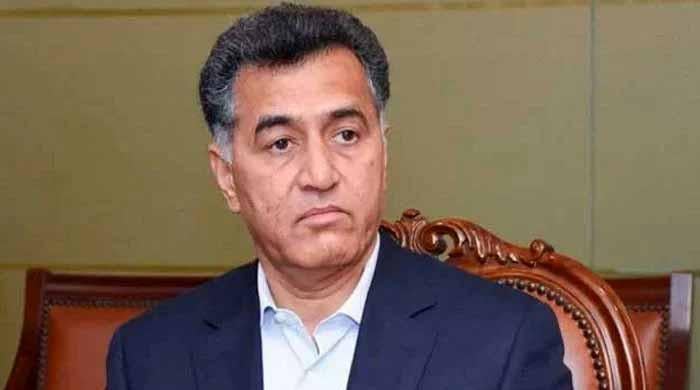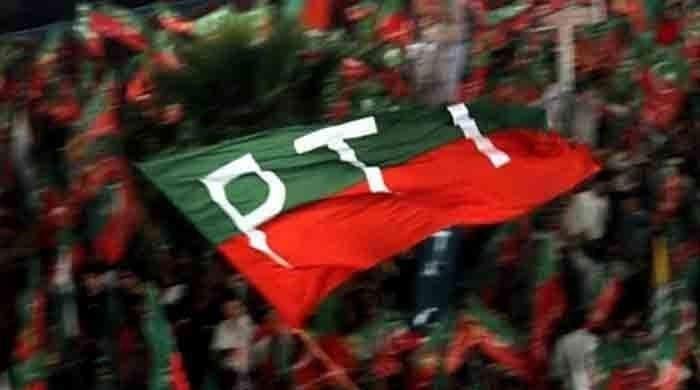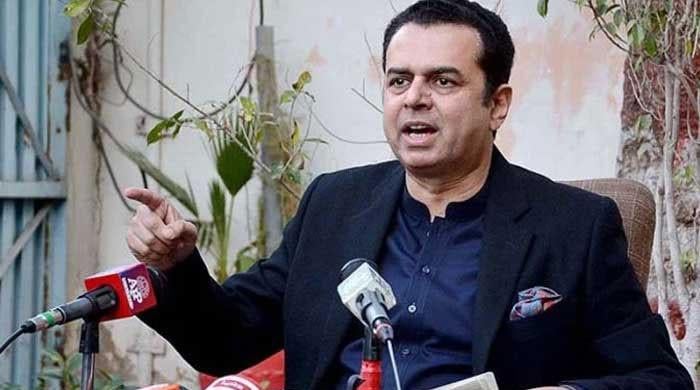Quetta blast: Solidarity strike to be observed in Karachi
KARACHI: The Shia Ulema Council has called a strike today to express solidarity with Quetta's bereaved Hazara families, which lost 80 of their loved ones in one of the biggest bombings in the...
February 18, 2013
Several political, religious, social, transporters, and trade & business groups have confirmed full support for the strike called, which means major markets in the city will remain closed, while no transport will be available to commuters and public at large today.
Reportedly, private schools have also announced a holiday on Monday.
Muttahida Qaumi Movement (MQM), Pakistan Sunni Tehrik, Jamiat-e-Ulema-e-Islam (Fazal), Karachi Transport Ittehad, All Karachi Tajir Ittehad, and Goods Transporters Association are among those groups which have put their weight behind the shutter-down wheel-jam strike.
AFP Adds:
Protests erupted across Pakistan Sunday to demand protection for Shia Muslims after a bomb blast targeting the minority community killed 81 people, the latest in a series of bloody sectarian attacks.
The bomb containing nearly a tonne of explosives, hidden in a water tanker, tore through a crowded market in Hazara town, a Shia-dominated area on the edge of Quetta, the capital of southwestern Balochistan province, on Saturday evening.
Up to 4,000 women began a sit-in protest in the city on Sunday evening, blocking a road and refusing to bury victims until the authorities took action against the extremists behind the attack, which also wounded 178 people.
More than 1,500 Shias took to the streets of the eastern city of Lahore to demand action and there were smaller demonstrations in the central city of Multan and Muzaffarabad, the main city of Pakistan-administered Kashmir.
Balochistan has increasingly become a flashpoint for surging sectarian bloodshed between Pakistan's majority Sunni Muslims and Shias, who account for around a fifth of the country's 180 million people.
Saturday's attack takes the death toll in sectarian attacks in Pakistan this year to almost 200, compared with more than 400 in the whole of 2012 -- a year which Human Rights Watch described as the deadliest on record for the country's Shias.
It was the second major attack on Shia in Quetta this year, after a double suicide bombing on a snooker club in the city on January 10 killed at least 92 people, the deadliest ever single attack on the community in Pakistan.
No-one has been arrested for the snooker hall attack and Daud Agha, chairman of Shia Conference, told AFP anger was rising in the community.
"Up to 4,000 women have started a sit-in on a main road leading to Hazara town and have refused to bury the bodies," he said. Police said the protesters numbered up to 3,000.
Police and administration officials held negotiations with the Shias to end Sunday's protest and bury the bodies, but community leaders told them that the sit-in would continue until a targeted operation against extremists is launched, he said.
It is customary for Muslims to bury the dead swiftly, and a similar protest after the snooker club bombing prompted Islamabad to sack the provincial government.
The banned militant group Lashkar-e-Jhangvi (LeJ) claimed responsibility for Saturday's attack -- as it did for the snooker hall bombing and a February 1 attack on a Shia mosque in northwest Pakistan that killed 24.
There is anger and frustration at the apparent inability or unwillingness of the authorities to tackle the LeJ. Activists say the failure of the judiciary to prosecute sectarian killers allows them to operate with impunity.
Balochistan governor Zulfiqar Magsi pointed the finger at the security forces over the latest atrocity.
"Repeated occurrence of such attacks is a failure of our intelligence agencies," he told reporters late on Saturday.
"Our security institutions, police, FC (paramilitary Frontier Corps) and others are either scared or cannot take action against them."
But Balochistan home secretary Akbar Hussain Durrani said authorities were already taking action against the militants.
"Law enforcement agencies have arrested so many suspects and seized huge cache of arms," Durrani said.
Witness Zainab Bibi, 38, said the carnage after the blast was "like the day of judgment had come".
"Initially I could not see anything because of a thick cloud of dust but I could hear loud screaming," she told AFP.
"As the dust settled, I saw blood everywhere, torn bodies were lying everywhere with no clothes on."
Pakistan is due to hold a general election in the coming months but there are fears that rising sectarian violence could force the postponement of polls.
Balochistan, which borders Iran and Afghanistan, also suffers militancy and a regional insurgency demanding political autonomy and a greater share of profits from the region's natural resources.









